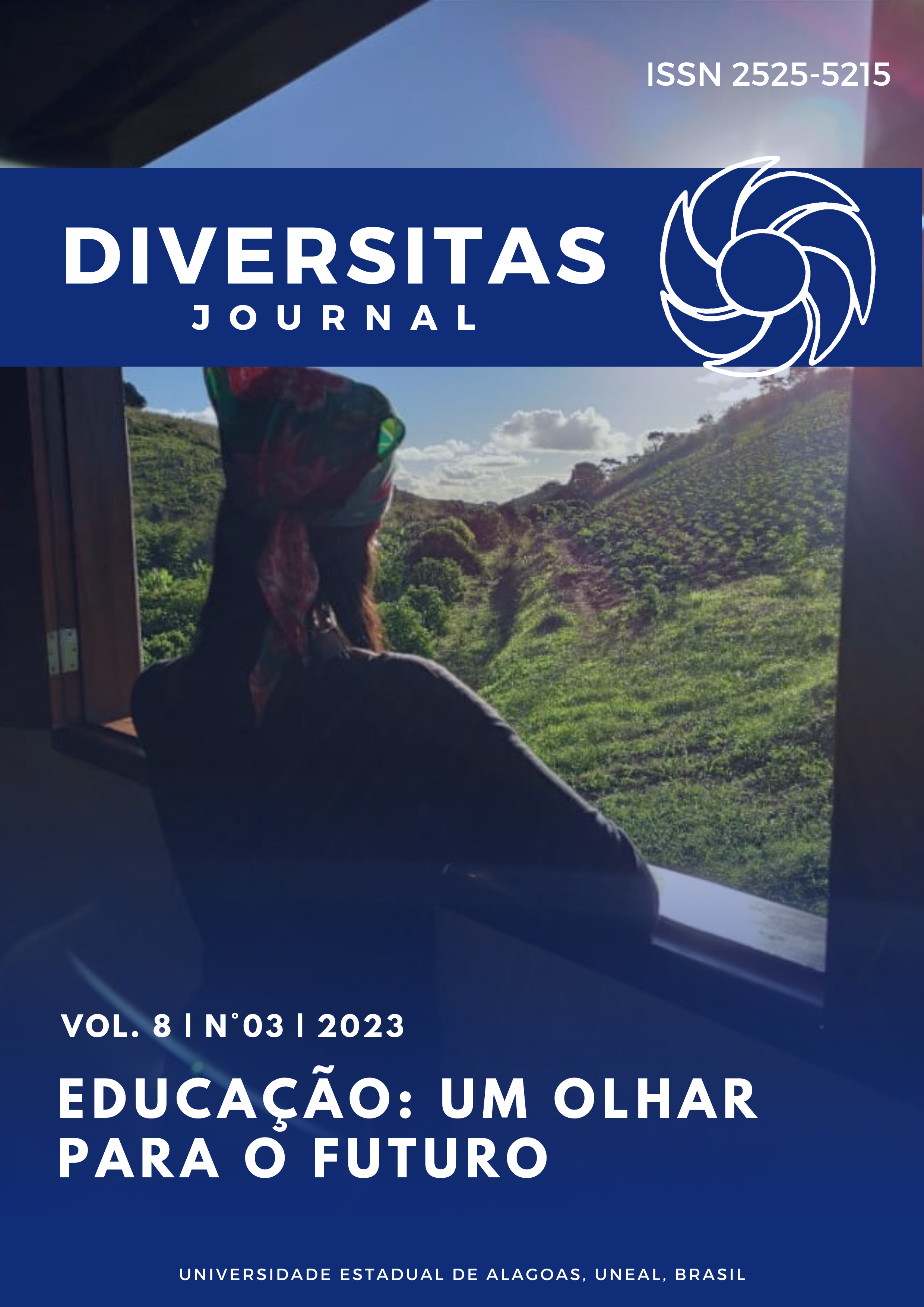Development of Technological Educational Products for teaching environmental sciences
DOI:
https://doi.org/10.48017/dj.v8i3.2467Keywords:
Learning Objects, Meaningful Learning, InnovationAbstract
Technological educational products have gained prominence and become strong allies in the teaching of environmental sciences, especially by the pandemic context and environmental degradation that we are experiencing. In face of this ecological, social and political problematic, this article was part of a research of the Post-Graduation Course in National Network for the Teaching of Environmental Sciences of the Federal University of Pernambuco (PROFCIAMB/UFPE) that has as a prerequisite for its conclusion the production of a technical and technological product. Thus, the objective of this work is to present three educational technological products that were produced in order to develop socio-environmental awareness in students, they are: an application, a blog and a digital booklet, which were applied in elementary school in three public and private schools, based on the BNCC and the SDGs, with the main theoretical framework: Ausubel (1980) and Braga; Pimentel; Dotta (2012).The methodology used was a quali-quantitative research with participatory nature and the products were developed in a multidisciplinary perspective. Based on the research and observations of the applications of educational technological products in different contexts and methodologies it was possible to verify that the products were well evaluated in the communities where they were applied, bringing positive experiences in the process of teaching and learning.
Metrics
References
Ausubel, D. P., Novak, J. D.; Hanesian, H. (1978). Educational psychology: a cognitive view. (2ª Ed.). Holt.
Ausubel, D. P., Novak, J., Hanesian, H. (1980). Psicologia Educacional. Interamericano.
Braga, J. C., Pimentel, E., Dotta, S. (2012, 17 julho) Desafios para o Desenvolvimento de Objetos de Aprendizagem Reutilizáveis e de Qualidade.Workshop de Desafios da Computação Aplicada à Educação Desafie, Brasília DF. file:///C:/Users/PC/Downloads/2779-4747-1-SM.pdf
BRASIL. Ministério da Educação. Base Nacional Comum Curricular (BNCC). Brasília, 2017. Disponível em: http://basenacionalcomum.mec.gov.br/
BRASIL. Ministério da Educação. Coordenação de Aperfeiçoamento de Pessoal de Nível Superior (CAPES). Produção Técnica. Brasília, 2019. https://www.gov.br/capes/pt-br/centrais-de-conteudo/10062019-producao-tecnica-pdf/
Secretária da Educação Básica. Base Nacional Comum Curricular. Brasília: Ministério da Educação. (2017). http://download.basenacionalcomum.mec.gov.br/
Carvalho, I.C.M. (2012). Educação Ambiental: a formação do sujeito ecológico.(6°ed.). Cortez.
Conte, E., Ourique, M. L. H., Basegio, A. C. (2017). Tecnologia assistiva, direitos humanos e educação inclusiva: uma nova sensibilidade. Educação em Revista, (n. 33), p.163.
FREIRE, P. Pedagogia da autonomia: Saberes necessários à prática educativa. São Paulo: Paz e Terra, 1996. p. 39 e 86.
Lara, A. E., Sousa, C. M. S. G. (2020, 25 agosto). O processo de construção e de uso de um material potencialmente significativo visando a aprendizagem significativa em tópicos de colisões: apresentação de slides em um ambiente virtual de aprendizagem. Experiências em Ensino de Ciências, v. 4, (nº2), pp. 61-82.
Masini, E. F. S., Moreira, M. A. (2006). Aprendizagem significativa: a teoria de aprendizagem de David Ausubel. (2ª ed.). Centauro Editora.
Mello, C. M. C., Sganzerla, M. A. R. (2013). Aplicativo android para auxiliar no desenvolvimento da comunicação de autistas. Nuevas Ideas en Informática Educativa,v. 9, pp. 231-239.
Minayo, M. C. de S. (1997). Pesquisa social: teoria, método e criatividade. (7ª ed.). Vozes.
Oliveira, A. A. S., Omote, S., Giroto, C. R. M. (2008). Inclusão escolar: as contribuições da educação especial. Cultura Acadêmica.
Rocha, E. F., Castiglioni, M. C. (2005, 01 setembro). Reflexões sobre recursos. Revista Terapia Ocupacional, v. 16, (nº 3), pp. 97-104.
Tavares, R. (2008). Aprendizagem significativa e o ensino de ciências. Ciências & Cognição, v. 13, (nº 1), pp. 94-100.
United Nations. (2020). Sustainable development goals.https://sdgs.un.org/.
Downloads
Published
How to Cite
Issue
Section
License
Copyright (c) 2023 José Macio Rodrigues Ribeiro, Maristela Souza da Silva, Rayza Laurindo Domingos

This work is licensed under a Creative Commons Attribution 4.0 International License.
The Diversitas Journal expresses that the articles are the sole responsibility of the Authors, who are familiar with Brazilian and international legislation.
Articles are peer-reviewed and care should be taken to warn of the possible incidence of plagiarism. However, plagiarism is an indisputable action by the authors.
The violation of copyright is a crime, provided for in article 184 of the Brazilian Penal Code: “Art. 184 Violating copyright and related rights: Penalty - detention, from 3 (three) months to 1 (one) year, or fine. § 1 If the violation consists of total or partial reproduction, for the purpose of direct or indirect profit, by any means or process, of intellectual work, interpretation, performance or phonogram, without the express authorization of the author, the performer, the producer , as the case may be, or whoever represents them: Penalty - imprisonment, from 2 (two) to 4 (four) years, and a fine. ”


















